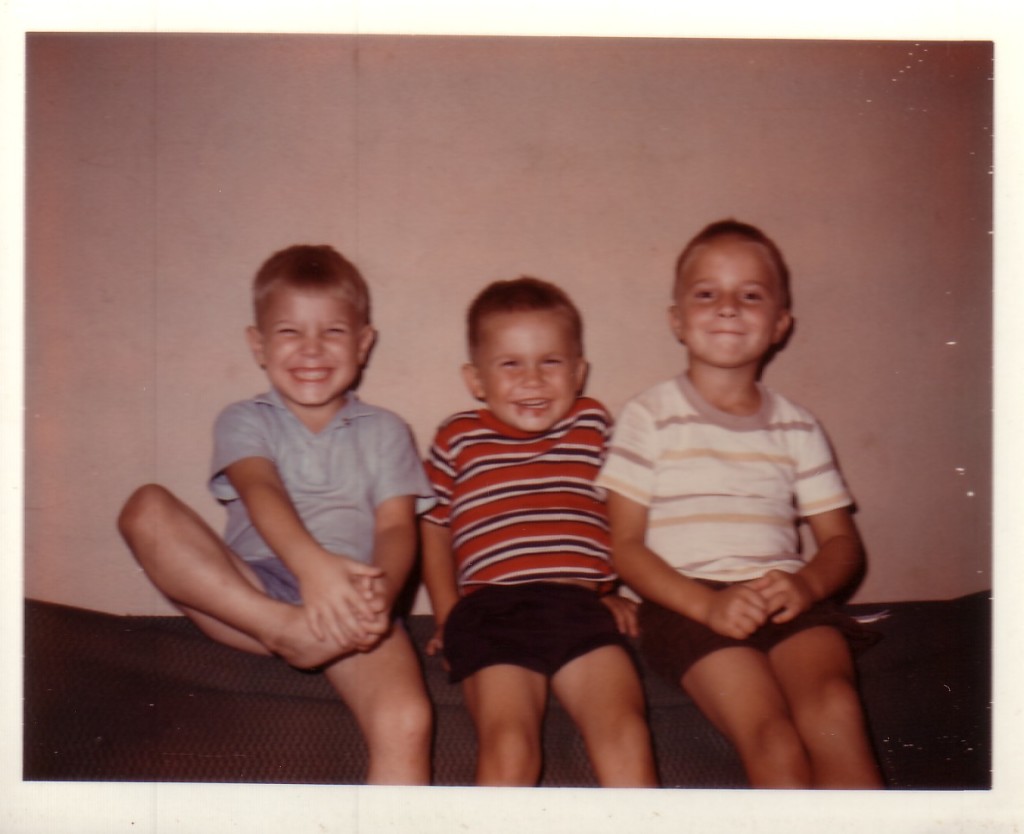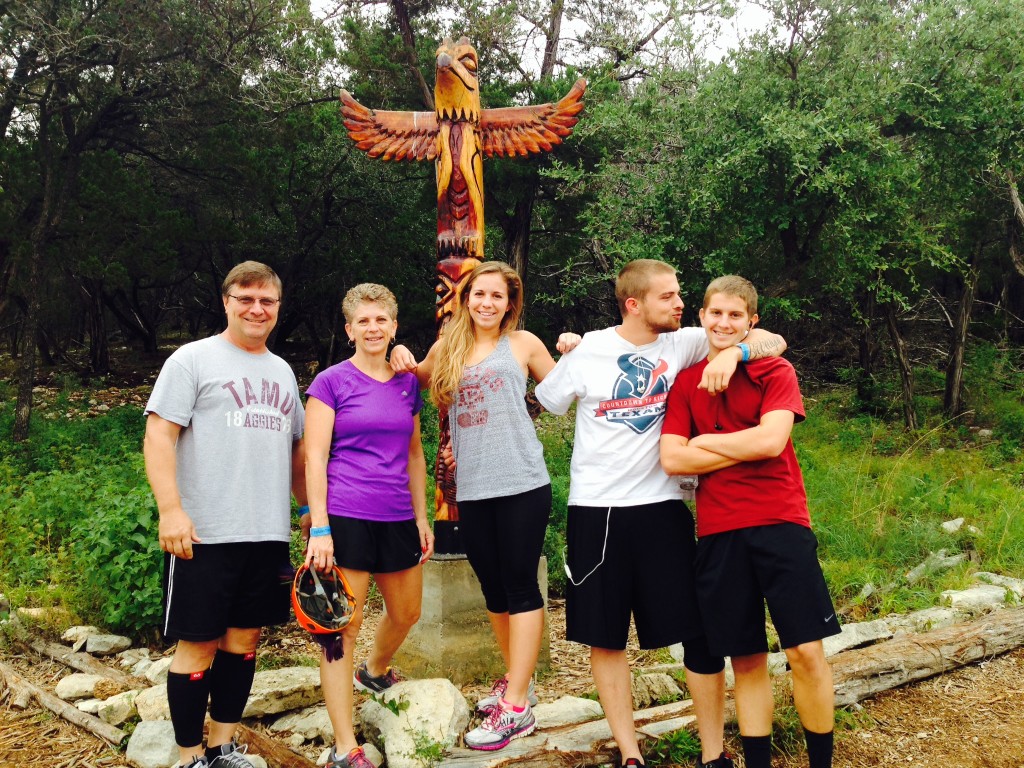Imagine your mother dropping you off at a children’s home at age three or four along with your younger brother. Then spending the rest of your growing up years moving from one foster home to another, wondering if you and your brother will stay together, learning that you really do have a mom and another brother when you are about age eight, then at age 18 meet two sisters for the first time. How would you make sense of it? What are the odds you would do well in school, much less in life?

That pretty much was Bruce Moore’s life. Bruce lived his entire life as a foster kid which means he was in the custody of the state. No one ever adopted him even though he lived with the third foster family for over 15 years. He found out around age 17 that his biological mother never relinquished her parental rights, and it seems that the state didn’t have a reason to terminate them.
Bruce legally “aged out” of the system when he turned 18. He beat the odds though, because most foster kids who age out of the system face a lifetime of unemployment, broken relationships, and addictions. Yet, Bruce, who is in his early 50s, is still married to his bride. They have three grown children, and they own their own business. What made the difference for Bruce?

I am honored to share some of Bruce’s story of growing up as a foster child. As you read his story, look for the answer to that question—what made the difference for him? You might just be able to make a difference in a child’s life too.
Bruce Moore’s Story
Foster Placements
Bruce’s mother dropped him and his brother off at a children’s home when he was about 3-4 years-old. From then until he was about 11 years-old, Bruce lived in four homes. Soon after being left at the children’s home, the state placed Bruce and his brother in a foster family’s home. This family had a son who was younger than Bruce but older than his brother. After a couple of years, they decided that they wanted their biological son to be the oldest, so they wanted to send Bruce back to the children’s home but keep his brother. The state decided to keep the brothers together.
The state moved the boys to foster family #2. A couple in their 80s who had fostered many children. This couple had received recognition for their service. However, Bruce’s memory as an elementary age boy was the long list of chores he had—clean house, wash clothes, tend to chickens and rabbits, keep the garden, maintain the yard—and take care of “papa” when he messed himself in bed.
No doubt this foster family provided a needed home for many children throughout the years, but by most standards, this was not the best environment for Bruce and his brother. Discipline bordering on abuse, neglect, inappropriate physical labor…still Bruce’s comment, “I didn’t know any different. That was life.”
Because of this couple’s age, the state decided again to move Bruce and his brother once again to another foster family. Foster family #3 and the boys fourth place to live.
A couple in their 50s began to visit the boys. Bruce is 11 years-old by now. He feels a slight connection and comfort with this couple. They went out of their way to help Bruce and his brother feel safe, even opening up a telephone book on their first visit to show the boys that indeed they were real people with a home and phone number.
Bruce and his brother did end up moving to this foster family. And, Bruce lived with this family until he married at age 27. However, the family decided to place his younger brother, when he was about 14, back at the children’s home because of behavioral challenges. The brothers were split up after all.
Challenges
Growing up as Bruce did creates challenges. These challenges aren’t unique to Bruce. Any child in foster care faces these and many more.
Trust
His first foster family sent him back to the children’s home. His second foster family basically treated him like he was child labor. No wonder by the time he moved to his third foster family, he didn’t trust them or anyone else. He, like most any other foster kid, learned how to survive. He soon figured out that “you can send a foster kid back”. He did his best to stay out of trouble, so he wouldn’t be sent away.
Education
No one read to Bruce or his brother when they were young. Bruce didn’t attend kindergarten, so when he began 1st grade, he didn’t know how to read. He never recovered. With no one advocating for his education, and the state diagnosing him as mentally retarded, little was expected of him.
When he moved in with his third foster family, he was in the fourth grade but reading at a first grade level. The school placed him in special education, later called resource, where he remained until he graduated from high school.
Struggling in school is common for foster kids, especially those who move a lot. Think about it. How can a child concentrate on learning when they are constantly in “survival mode”?
Shame
Shame runs rampant within foster kids minds. What did I do wrong? What is wrong with me? Why doesn’t my real mom or dad want me? Shame and regret also haunts biological parents who aren’t able or willing to take care of their children. The shame entangles the family like a weighted fishing net pulling them deeper into the abyss.
As Bruce began to understand that he was called a foster kid, his friends would ask him, “what’s a foster kid?” “Did you do something wrong, rob a bank, or kill somebody?” “No, I don’t think so”, Bruce would reply. But really he didn’t know why he was a foster kid.
Making Sense of Life
He remembers never talking to his friends in school about parents. It wasn’t a part of his vocabulary. He never wondered what another friend’s dad or mom did. Why would he? Recently Bruce had the thought, “I’ve never called anybody dad.”
Bruce never meant to disrespect any of his foster parents, but especially after he found out he had a real mom, he would never call any of them “mom” or “dad”. After his mom came back into the picture, like most kids in foster care, he kept believing that she was going to remarry, get back on her feet and come get Bruce and his brother so they could be a family again.
But that never happened.
As Bruce learned more about his biological family, he comes to the defense of his mom and other parents whose children are in foster care. As he puts it, “no one knows their story.”
What helped Bruce “succeed” where so many others fail?
Mentors! As I listened to Bruce tell his story, I heard him mention over and over different people who invested in him. Some for many years like the last foster family. Those foster parents spent time with him playing sports, helping with school work, providing stability.
Bruce related stories of school teachers, Sunday school teachers, coaches, even older foster brothers who all encouraged, mentored, and helped Bruce along the way.
For example, Bruce told me a story about one man from his church who spent some time with him one day when Bruce was a teenager. His whole purpose was to teach Bruce about how to treat women, and the need to be wise in his relationships. This man didn’t have to do that. But it was a thing a father would do.
My Thoughts
- I believe mentors and father or mother figures gave Bruce the foundation for success.
- No kid asks to grow up in the foster care system.
- Every child from a hard place needs others to tell them over and over that they have value.
In the community where you live are boys and girls just like Bruce. Children who for no reason of their own are in this kind of situation. Would you consider how you can at the very least be a mentor, if not making them a part of your family either through adoption or fostering?

Kenny you are doing a great job with this blog. I enjoy the way you write…real and to the point. This is a great story about Bruce. Thank you for your insight into his life and the encouragement that many do come out of the system and succeed.
Thank you James. Your encouragement means a lot. As to children who spend time, if not their entire lives, in foster care, the challenges are real. I hope this blog encourages many to embrace children from a hard place and help them navigate the challenges and overcome them. The alternative is not acceptable.
What an impactful story. Grateful to know and love Bruce and his family. What an inspirational and challenging message this story has to offer. Thanks for sharing, Kenny.
Thanks Kelly! I agree. Bruce’s story is inspirational. We never know how much of a positive impact we can have on a young person’s life, especially those who come from a hard place like Bruce did.
[…] Foster Care through the Eyes of One Who Aged out of the System (5/12/2015) […]